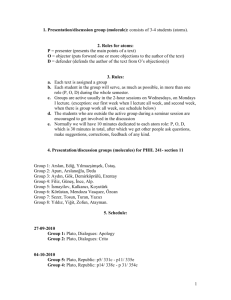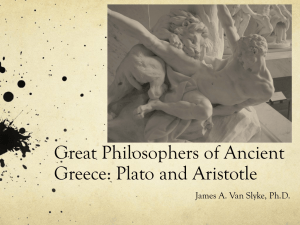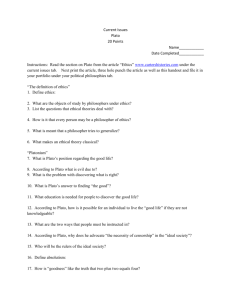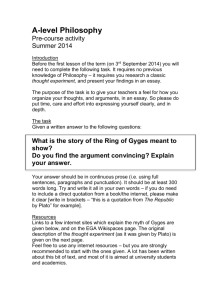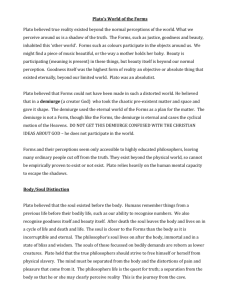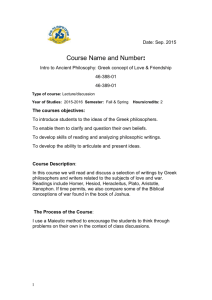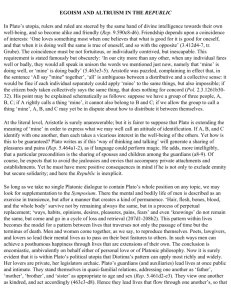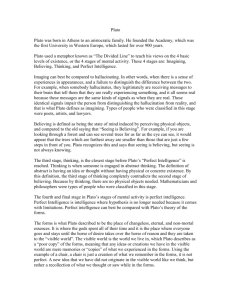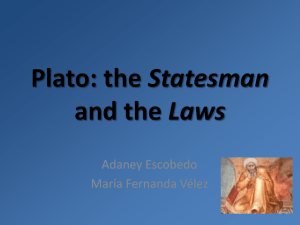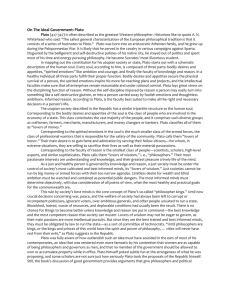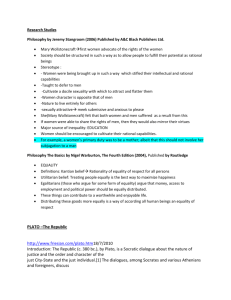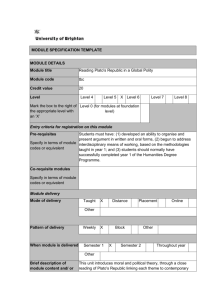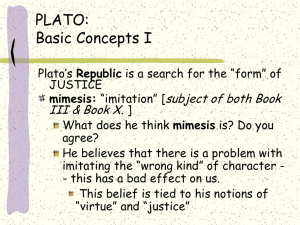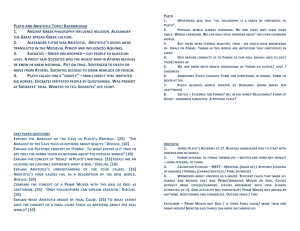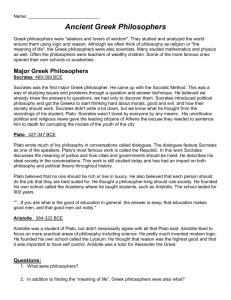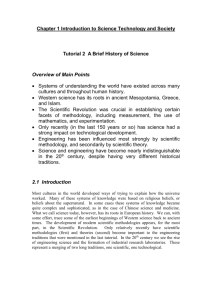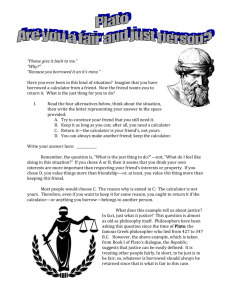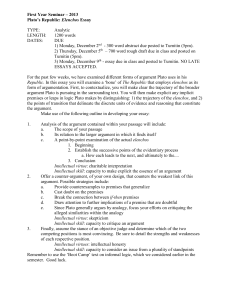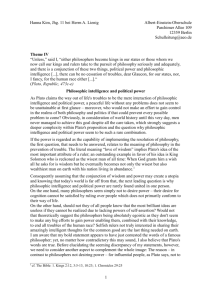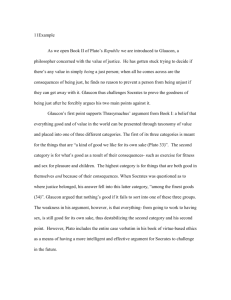The_Republic_Reading
advertisement
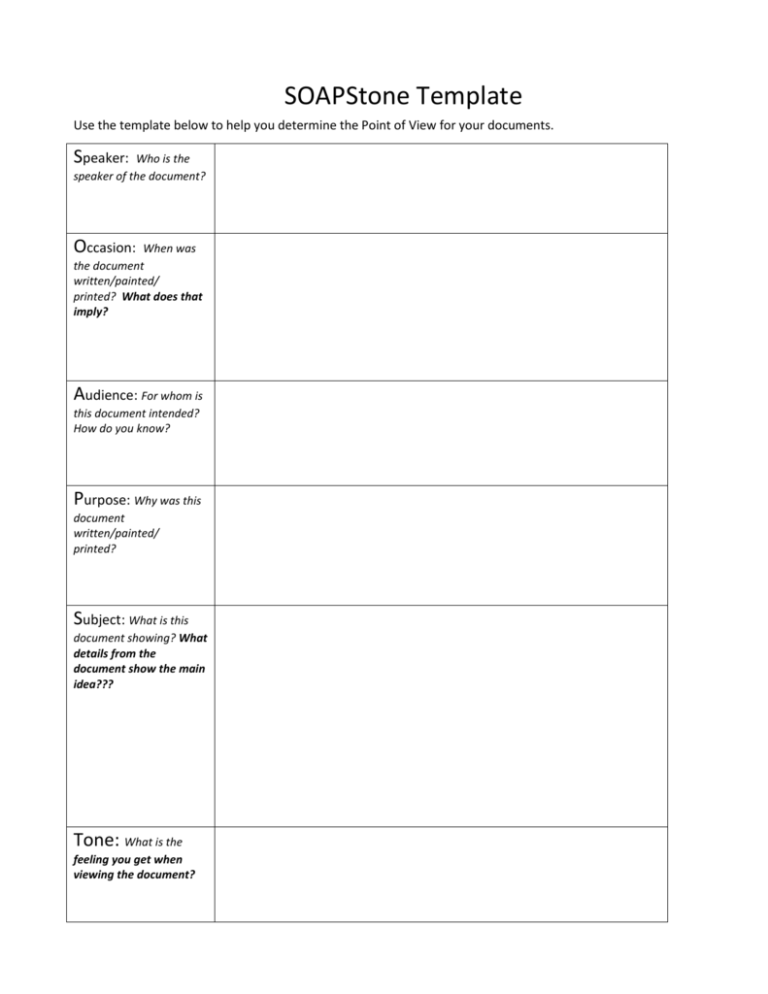
SOAPStone Template Use the template below to help you determine the Point of View for your documents. Speaker: Who is the speaker of the document? Occasion: When was the document written/painted/ printed? What does that imply? Audience: For whom is this document intended? How do you know? Purpose: Why was this document written/painted/ printed? Subject: What is this document showing? What details from the document show the main idea??? Tone: What is the feeling you get when viewing the document? Name: _______________________ Per. ___ Primary Source Skills Activity Directions: Read the primary source from Plato’s The Republic and respond to the questions below: Excerpt from: The Republic, by Plato Plato, a Greek philosopher and writer, lived in Athens during its Golden Age. Much of his work takes the form of a dialogue between two or more people. In this excerpt from Plato’s most famous work, The Republic, the Greek philosopher Socrates and Plato’s older brother, Glaucon hold a conversation about the ideal statesman. According to Plato, why should philosophers run the government? The Philosopher’s Fitness to Rule “So at last Glaucon, after this long and weary way, we have come to see who are the philosophers and who are not… Which are we to take up now? Surely the one that follows next in order. Since the philosophers are those who can apprehend the eternal and unchanging, while those who cannot do so, but are lost in the mazes of multiplicity and change, are not philosophers, which of the two ought to be in control of a state? I wonder what would be a reasonable solution. To establish as Guardians whichever of the two appear competent to guard the laws and ways of life in society. True… It would be absurd not to choose the philosophers, whose knowledge is perhaps their greatest point of superiority, provided they do not lack those other qualifications… One trait of the philosophic nature we may take as already granted: a constant passion for any knowledge... And, we may add, their desire is to know the whole of that reality; they will not willingly renounce any part of it as relatively small and insignificant, as we said before when we compared them to the lover and to the man who covets honour. True. Is there not another trait which the nature we are seeking cannot fail to possess—truthfulness, a love of truth and a hatred of falsehood that will not tolerate untruth in any form? Yes, it is natural to expect that… And if a man is temperate and free from the love of money, meanness, pretentiousness, and cowardice, he will not be hard to deal with or dishonest. So, as another indication of the philosophic temper, you will observe whether, from youth up, he is fair-minded, gentle & sociable. Certainly. Also, you will not fail to notice whether he is quick or slow to learn…And if he cannot retain what he learns, his forgetfulness will leave no room in his head for knowledge; and so, having all his toil for nothing, he can only end by hating himself as well as his fruitless occupation. We must not, then, count a forgetful mind as competent to pursue wisdom; we must require a good memory.” Critical Thinking Questions: 1. Describe the argument being discussed in The Republic: 2a. According to Plato, describe the qualities of what makes a good ruler: 2b. How is this a biased argument? 3. How is the argument being made by Plato a challenge to the political system of Ancient Greece during this time? 4. Why do you think Plato entitled his work The Republic?

